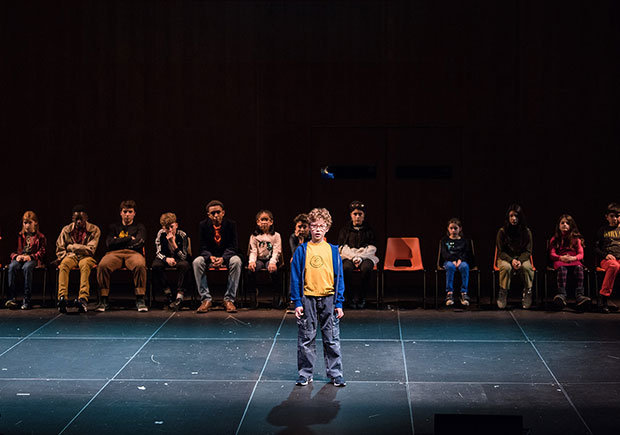
© Hugo Glendinning. (Click image for larger version)
Forced Entertainment
That Night Follows Day
★★★★✰
London, Purcell Room
11 December 2018
www.forcedentertainment.com
www.southbankcentre.co.uk
Performed by a cast of seventeen children ranging from ages 5 – 15, Forced Entertainment’s delightfully humorous and poignant work reveals how adults shape children through their projection of values and beliefs. Directed by Tim Etchells and Hester Chillingworth, a rich narrative unfolds in That Night Follows Day which is recited by the children as a big chorus, individually or in small groups. Each mode of delivery varies the impact and pathos of the text, as well as revealing the collective and individual strengths of the children who are from a wide variety of economic and racial communities.
Entering one by one to form a long line down stage the children address us audience members in the second person with a boldness and assertiveness that is beguilingly adult. Whether we are or not, they position us collectively as parents. Their beady eyes confront us in a searching gaze, their body language is open and relaxed as they tell us things that make us laugh but also that make us feel guilty and self-conscious about our parental bullshit.
Standing in their line, shouting out text loud and clearly each child is a unique character. A different range of emotions flows through the text – love, frustration, anger and amusement -which they expressively embody as they deliver their lines: hand gestures, a tilting of the head, a shrug of the shoulders as they emphasise certain words. Pedestrian movement flows from and enhances the narrative.
In case we don’t hear them, subtitles appear above their heads. “You wash us. You feed us. You clothe us.” One younger girl performs her lines with an earnestness and determination that is so engaging to witness, “you tell us lying is wrong” and “that Nigel Farage is bad.” While an older girl seethes with anger and scorn, “You limit screen time” and “ you point out buildings that don’t exist anymore.”
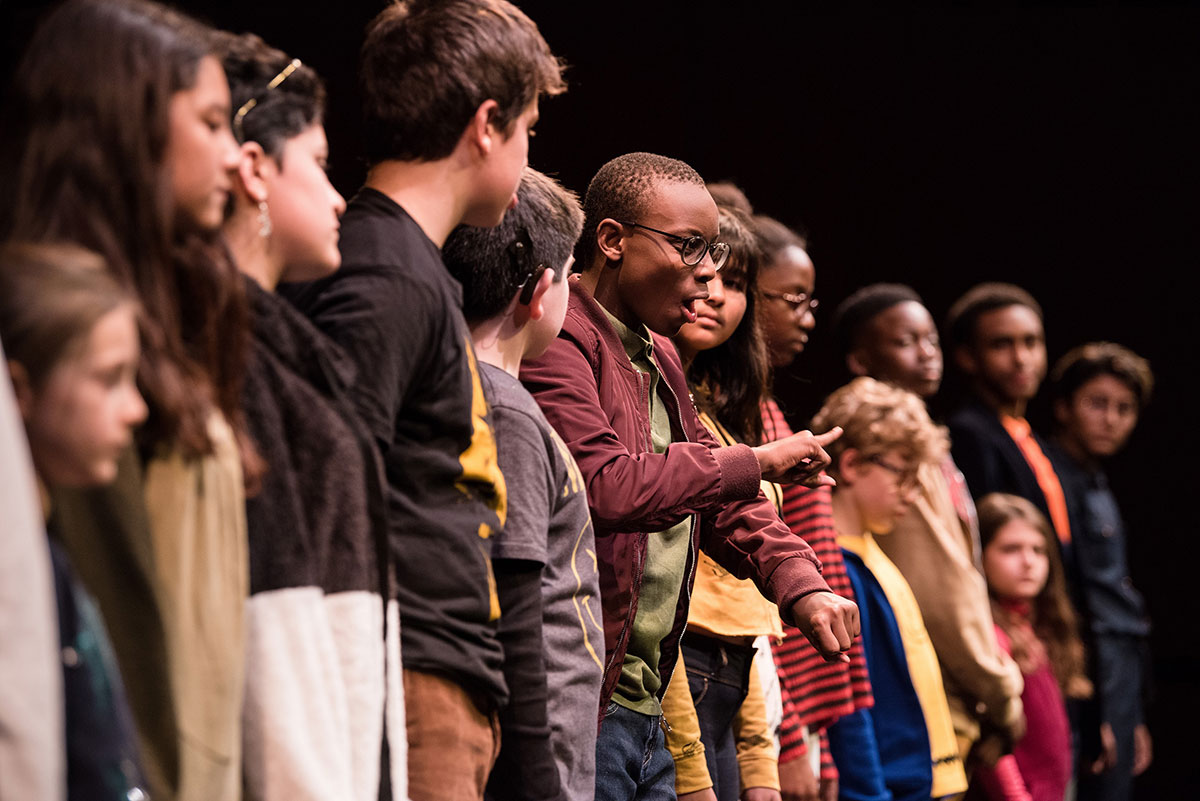
© Hugo Glendinning. (Click image for larger version)
In one section of the show we hear the children briefly speaking in their mother tongues but the common language that unites them is English and British Sign Language which brings a lively and expressive dynamic to the group, as two boys flamboyantly gesticulate to the words.
Although the staging of the show is minimal, the frequent forming and reforming of the line, the alternating between sitting on the chairs and standing down stage keeps it choreographically fluid. While the young people’s occupation of the stage is controlled and structured, towards the end they burst out of formation with chatting, shouting, playing games or cart-wheeling across the space, reminding us that they are children in addition to their role as messengers, conveying adult words to adult spectators.
Most of what we hear back about our own cultural inscription of our children is fine – words of advice, opinions, reprimands, encouragement and interesting bits of knowledge – what you might expect from middle-class, educated parents; the politicians we hate, the stories we love, the people we should fear, the behaviour we should practice, the learning we should undertake. However alongside the reasonable advice and sharing of scientific or art facts, exists a web of rules and regulations, prejudices and intolerances. And anger with our children. In a gentle way through the simplicity of the language, the repetitive nature of the text and the children’s natural, unforced movement we’re asked to question and reflect on our contribution to childhood.
While reviewing That Night Follows Day for DanceTabs might seem a little incongruous given there is no discernible ‘dance’ vocabulary, what is important about Forced Entertainment’s work is that it deliberately dissolves the boundaries between theatre, dance, performance art and visual art but is informed by them all.

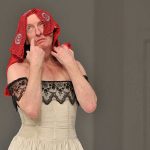
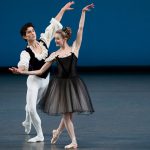

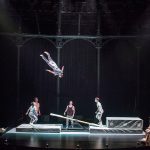

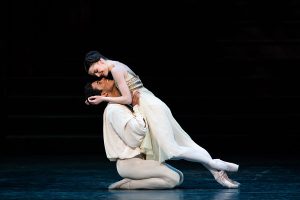
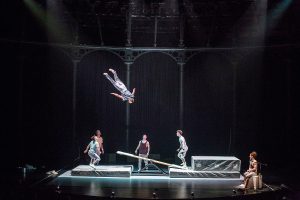
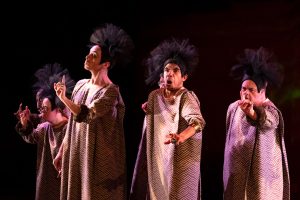
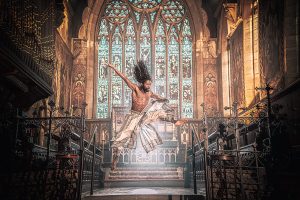

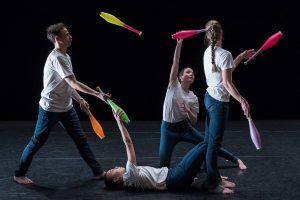
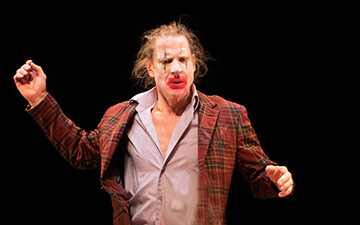
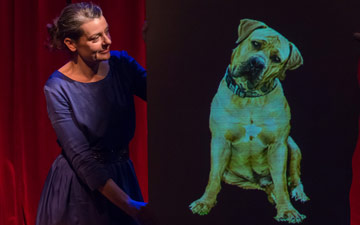
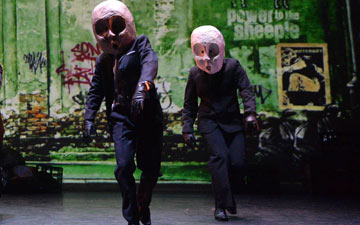
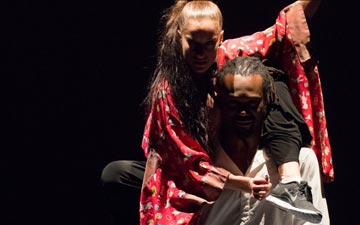
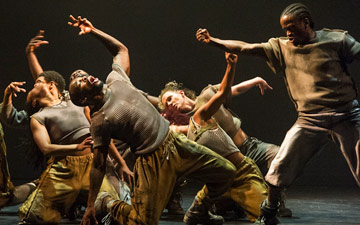
You must be logged in to post a comment.